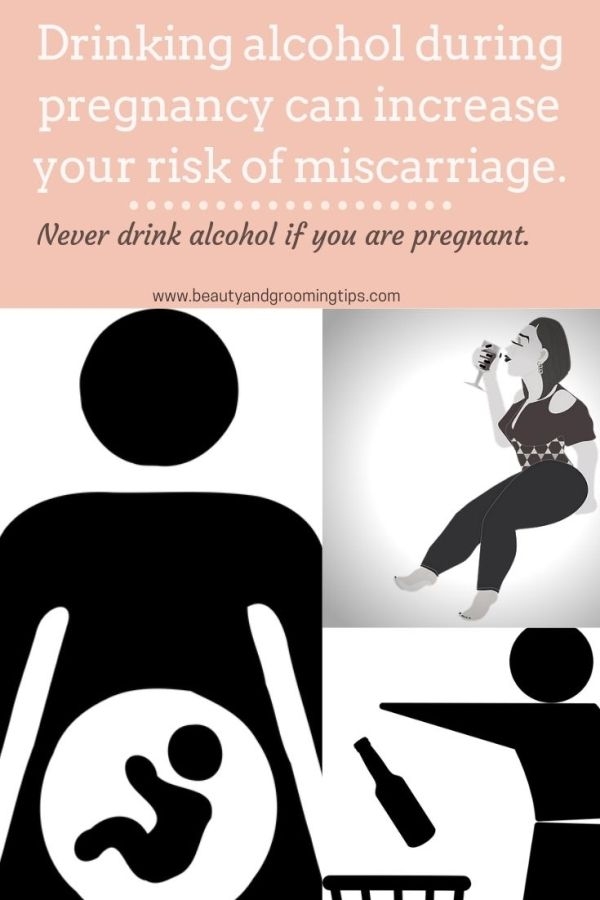Miscarriage can be devastating for any woman who's looking forward to hold her baby in her arms after a long wait of 9 months. In most cases, it's often difficult to ascertain the exact cause of miscarriage; in fact most missed abortions occur for reasons you have no control over.
Even then, learning about a few risk factors that could possibly cause miscarriage, the foods or medications that are possibly dangerous for pregnancy and your unborn fetus, the lifestyle habits that may not be conducive for a safe pregnancy etc. could help you to a great extent and put your mind at ease and help you improve your chances of carrying your pregnancy to a full-term.
Read:
So don't blame yourself and indulge in guilt-consciousness if at all you have to go through an unfortunate missed abortion.
Try your best to to do everything you can to have a healthy pregnancy but don't feel too guilty about the outcome.
Read: Top home remedies after an unfortunate miscarriage.
Researchers analyzed 24 studies conducted between 1970 and 2019 that included more than 231,000 pregnant women. They found that drinking alcohol during pregnancy -- even small amounts -- increases odds of miscarriage by 19%.
Among women who have fewer than five drinks a week, each additional drink a week during pregnancy was linked with a 6% higher risk of miscarriage.
Adverse pregnancy outcomes, like fetal alcohol syndrome, are often associated in popular culture with heavy consumption. However, our meta-analysis indicates even a modest amount of alcohol use has a meaningful impact on miscarriage risk, says lead investigator Alex Sundermann.
Drinking alcohol during pregnancy makes your baby more likely to have premature birth, birth defects and fetal alcohol spectrum disorders.
Studies have proven beyond any doubt that alcohol in your blood crosses the placenta and the umbilical cord. Hence, whenever the mother-to-be drinks alcohol, the fetus receives alcohol. Alcohol is no good for a growing fetus and can harm its developing brain and other organs.
No amount of alcohol has been proven safe at any time during pregnancy. Here alcohol includes wine, wine coolers, beer and liquor.
Here are a few home remedies to stop drinking alcohol. However home-remedies may not help much if you have a weak will-power, strong withdrawal symptoms and your addiction is beyond the scope of home treatment; in such cases you have turn to help from the likes of de-addiction centres like Alcoholics Anonymous etc.
So if you are planning for a baby, do give up alcohol or else don't get pregnant!
Do share your thoughts and views in the comments.
Even then, learning about a few risk factors that could possibly cause miscarriage, the foods or medications that are possibly dangerous for pregnancy and your unborn fetus, the lifestyle habits that may not be conducive for a safe pregnancy etc. could help you to a great extent and put your mind at ease and help you improve your chances of carrying your pregnancy to a full-term.
Read:
- Skin care and makeup during pregnancy - The Do's and Dont's
- Beauty Treatments to avoid during pregnancy
Sometimes miscarriage is inevitable.
However be aware that even if you do everything "right" like eat healthy, lead a considerable healthy lifestyle and avoid activities that are harmful for pregnancy, you could 'still' have a miscarriage.So don't blame yourself and indulge in guilt-consciousness if at all you have to go through an unfortunate missed abortion.
Try your best to to do everything you can to have a healthy pregnancy but don't feel too guilty about the outcome.
Read: Top home remedies after an unfortunate miscarriage.
Certain medications could be risky during pregnancy
In my previous posts, I had discussed how paracetamol pills are risky during pregnancy or that taking antacids during pregnancy carries increased risk of developing asthma in the offspring and even oral pills prescribed for vaginal yeast infections could pose a risk for the fetus. Also read about some other common causes of miscarriage in this WebMD article.Drinking alcohol during pregnancy can increase your risk of miscarriage.
A recent study has found that even small amounts of alcohol during pregnancy can up your chances of miscarriage.Researchers analyzed 24 studies conducted between 1970 and 2019 that included more than 231,000 pregnant women. They found that drinking alcohol during pregnancy -- even small amounts -- increases odds of miscarriage by 19%.
Among women who have fewer than five drinks a week, each additional drink a week during pregnancy was linked with a 6% higher risk of miscarriage.
Adverse pregnancy outcomes, like fetal alcohol syndrome, are often associated in popular culture with heavy consumption. However, our meta-analysis indicates even a modest amount of alcohol use has a meaningful impact on miscarriage risk, says lead investigator Alex Sundermann.
Say No to Alcohol during pregnancy
According to March of Dimes, you should never drink alcohol if you’re pregnant, trying to get pregnant or think you may be pregnant. Alcohol can cause problems for your baby at any time in pregnancy, even before you know you’re pregnant.Drinking alcohol during pregnancy makes your baby more likely to have premature birth, birth defects and fetal alcohol spectrum disorders.
Studies have proven beyond any doubt that alcohol in your blood crosses the placenta and the umbilical cord. Hence, whenever the mother-to-be drinks alcohol, the fetus receives alcohol. Alcohol is no good for a growing fetus and can harm its developing brain and other organs.
No amount of alcohol has been proven safe at any time during pregnancy. Here alcohol includes wine, wine coolers, beer and liquor.
Final thoughts
A very safe rule is to take zero alcohol not just during the entire duration of pregnancy but also if you are planning to get pregnant. But if you are used to drinking alcohol and have a hard time giving-up your drinking addiction, then you should seriously contemplate on seeking help for your problem.Here are a few home remedies to stop drinking alcohol. However home-remedies may not help much if you have a weak will-power, strong withdrawal symptoms and your addiction is beyond the scope of home treatment; in such cases you have turn to help from the likes of de-addiction centres like Alcoholics Anonymous etc.
So if you are planning for a baby, do give up alcohol or else don't get pregnant!
Do share your thoughts and views in the comments.



Comments
Post a Comment
Comments posted on this blog are moderated and approved only if they are relevant, on-topic and not abusive. Avoid using links to your site/blog in the body of your comment unless it is highly relevant to the post.